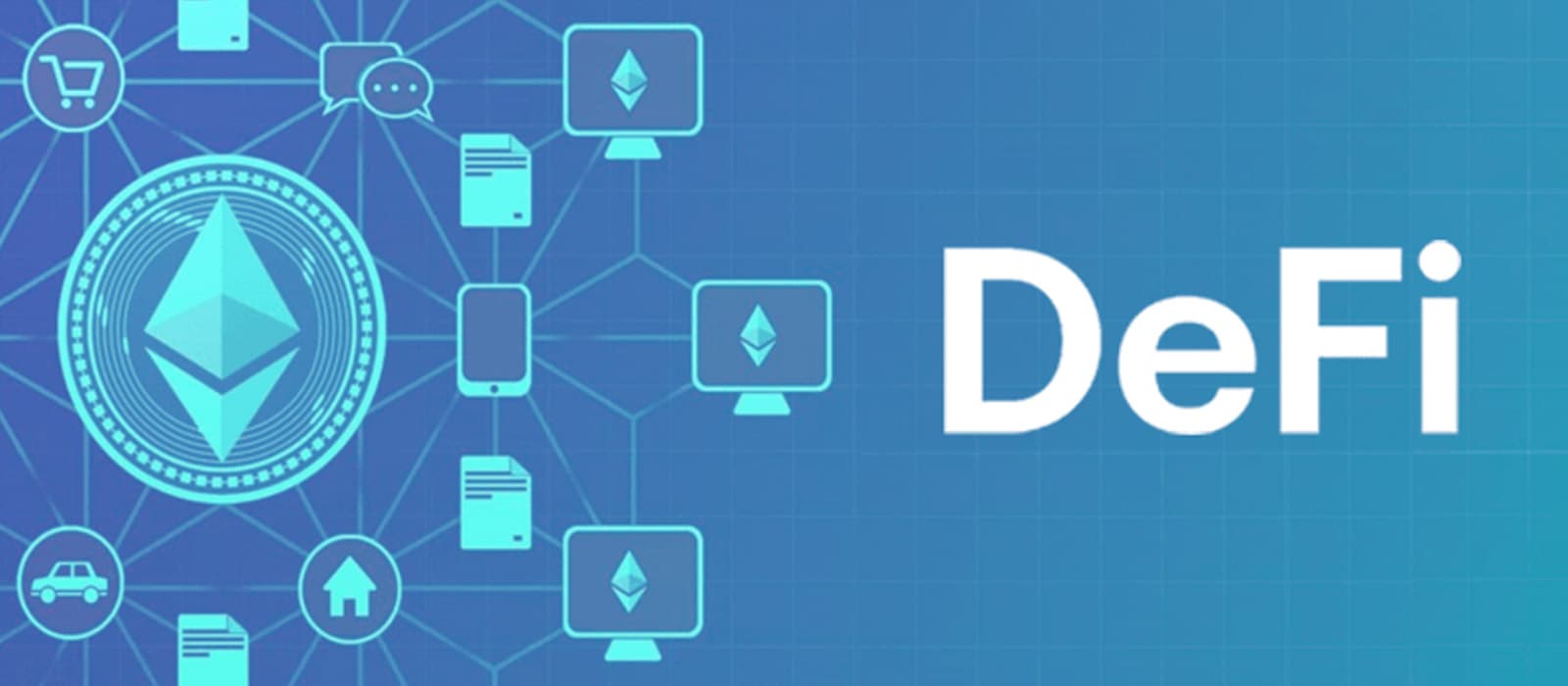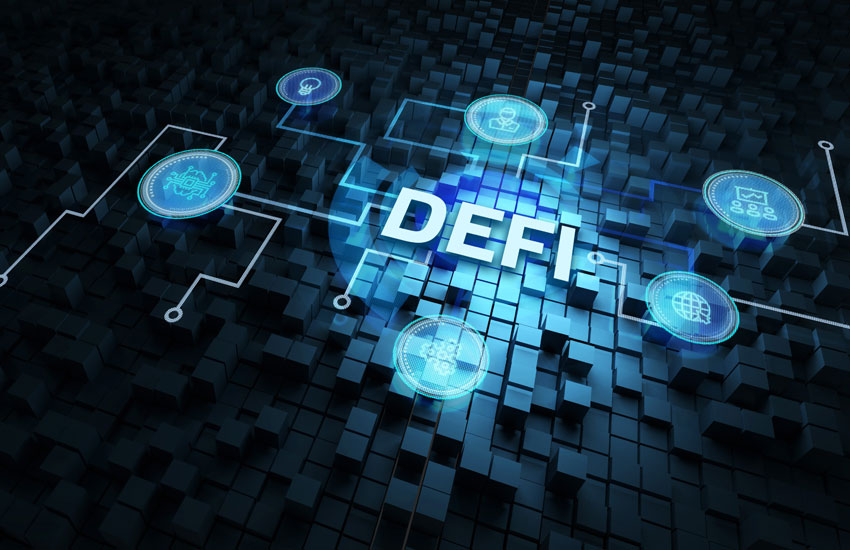
Ethereum and DeFi: What Is It All About?
DeFi, or Decentralized Finance in its simplest form refers to a system by which financial products become available on a public decentralized blockchain network, making them open to anyone to use, rather than going through middlemen like banks or brokerages. Unlike a bank or brokerage account, you don’t need a government-issued ID, proof of address, or Social Security number to use DeFi.
Today, DeFi has gained much more popularity in the crypto world than it was a couple of years ago. According to DeFi Pulse, the amount of money locked into various DeFi services is more than $2 billion from $1 billion it was a month ago. But it’s not just about the money – other assets are also being sucked into the DeFi ecosystem.
Now that DeFi has become a trend shooting for the sky, you should know everything you need to be a partaker of its numerous benefits. In this post, we will be showing you what DeFi really is, how far it has come, and some benefits and use cases of the new trend of finance. If after reading the post you agree that investing in DeFi is the next real thing for your portfolio, AnycoinDirect.eu is a good place to start.
What is DeFi?

DeFi is a collective term used for financial products and services built on the blockchain technology that makes it possible for buyers, sellers, lenders, and borrowers to interact peer to peer without the need of any middleman – it replaces them with smart contracts. With DeFi, markets are always open and there are no centralized authorities who can deny access or block payment. Smart contracts handling and scrutinizing transactions have made services that were previously slow and at risk of human error automatic and safer.
DeFi is now being used across the globe for different purposes. For instance, some crypto-savvy in Argentina were able to recently use DeFi to escape crippling inflammation. Companies have also started using it to pay the wages of their staff in real-time. Some folks have also been taking loans worth millions of dollars without the need for any personal identification.
How DeFi Started
Although DeFi is now more common with Ethereum, it all started with Bitcoin. Bitcoin was the first DeFi application as it allows you to really own and control value, and send it anywhere around the world without the need for a trusted intermediary. Bitcoin is open to anyone and no one has the authority to change its rules.
Bitcoin’s rules are written into the blockchain and so cannot be changed. It is not like traditional finance where the government can print money that devalues your savings and companies can shut down markets.
It was on this concept that Ethereum builds. Its rules also can’t be changed and it’s accessible to everyone. It introduces smart contracts so users can go beyond just storing and sending value – it makes your money programmable.
DeFi vs Traditional Finance

Making a comparison between these two will open up the several benefits locked up in DeFi. Here are some of the differences to note:
- Control: with DeFi, you are fully in control of your money – you decide where your money goes and how it is spent. But in traditional finance, your money is held by companies and you have to trust that they won’t mismanage it.
- Transaction speed: payment can take days in traditional finance due to manual processes, but with DeFi, transfer of funds happens in minutes.
- Accessibility: while DeFi is open to anyone, you must apply to use financial services in traditional finance. That way, your identity is tightly coupled with financial activity here. But with DeFi, transaction activity is pseudonymous.
- Transparency: because DeFi is built on a transparent blockchain, you can look at a product’s date and inspect how the system works. But financial institutions are closed
- books: you can’t see their loan history, a record of their managed assets, etc.
- Market accessibility: while DeFi is open at all times, the government can decide to close down the market at will in traditional finance. Trading hours are also often limited to business hours of a specific time zone.
How Does DeFi Work?
In today’s financial world, financial institutions like your banks and brokers act as guarantors or middlemen when performing any financial activity. But DeFi comes to replace the middlemen with smart contracts to provide services. That means, financial institutions no longer have power over your money.
A smart contract is a type of Ethereum account that can hold and send funds based on certain conditions – usually as an agreement between the two parties involved in a transaction. Since smart contracts are built on blockchain, they cannot be changed or altered when it’s live.
For instance, a company can create a smart contract to pay its staff every last Friday of the month. Once the smart contract is created, it means every worker of the company will get their payment on time and none of them will ever receive their payment late or be unpaid.
Contracts are also public for anyone to inspect and audit. That way, bad contracts will often come under the scrutiny of the community pretty quickly.
Popular Types of DeFi Applications

Stablecoins: A cryptocurrency that’s tied to an asset outside of cryptocurrency (the dollar or euro, for example) to stabilize the price.
- Decentralized exchanges (DEXs): these are platforms that help users exchange currencies for other currencies without the need for any intermediary. It allows users to exchange say, US. Dollars for Bitcoin or Ether without trusting a middleman with their money.
- Lending platforms: These platforms use smart contracts to replace intermediaries such as banks that manage lending in the middle.
- Wrapped bitcoins (WBTC): A way of sending bitcoin to the Ethereum network so the bitcoin can be used directly in Ethereum’s DeFi system. WBTCs allow users to earn interest on the bitcoin they lend out via the decentralized lending platforms described above.
- Prediction markets: Markets for betting on the outcome of future events, such as elections. The goal of DeFi versions of prediction markets is to offer the same functionality but without intermediaries.
What Can You Do With DeFi?
There is a wide range of things you can do with Ethereum DeFi. It comes as a great opportunity to create financial products that are completely new. These amongst several others, are what you can do with DeFi:
- Stream money around the globe
- Send money around the globe
- Borrow funds without collateral
- Start crypto savings
- Fund your ideas
- Trade tokens
- Grow your portfolio
- Access stable currencies
- Buy insurance
- Manage your portfolio
Is It Safe to Invest in DeFi?

Considering the speed at which DeFi is coming to mainstream and the numerous benefits and use cases following it, it is a wise decision for any crypto enthusiast to add DeFi to their portfolio. The system is gaining more popularity by the day, and so will its value continues to grow.
However, that doesn’t mean investing in DeFi is completely safe. While investing in it early before it comes to mainstream could bring massive gains, it is also very risky. Because of that, it is not recommended for newcomers because they won’t be able to differentiate the good projects from the bad.
There have been plenty of bad projects in the past, including applications such as coin YAM which crashed from $60 million to $0 market capitalization in just 35 minutes. Other DeFi projects like Hotdog and Pizza also faced the same fate and investors lost a whole lot of money.
However, if you understand how the system works and knows how to navigate your path around it, investing in DeFi could be one of the best things you would ever do in the crypto world.
